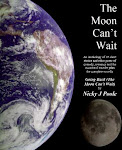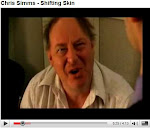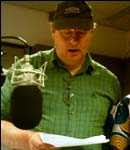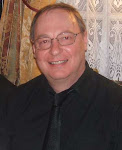Today, as we remember the 70th anniversary of the start of World War II, I can exclusively reveal a little-known fact. Not only did my father fight in the World War, he started it. And I can prove it. Well, almost.
Arthur was raised by Methodist parents in the rural fens of East Anglia. Many of his other relatives worked the land. I’d say they were farmers, but I’m not sure any of them actually owned any farms – in fact I’m not sure they owned anything, they were so poor – but they did do some farming. He left school at the age of fourteen to deliver milk, 14 hours a day from a ten gallon churn, something I would blanche at even now. Not surprisingly, he must have wondered whether there was a better life. He had one abiding interest – football. His parents’ best offer was that he become a Methodist minister.
He was talent-scouted and offered a contract with Peterborough United, then, as now, known as The Posh. The scout duly went to Arthur’s house to obtain his parents’ agreement. My grandfather literally chased him off the premises. Not only did he regard alcohol as a sin, along with sex, stealing and murder, he evidently thought football was the Devil’s handiwork too. My father was denied the opportunity of playing the game he loved, and for money too. Imagine that, today. Some parents probably would sell their children to a football club.
A few weeks later, World War II broke out. Coincidence? I think not. Two days after that, he enlisted.
That this son of the soil, when answering the call to arms, chose the Royal Navy, bearing in mind few duties took battleships into the heart of East Anglia, surely confirms it – he had planned all this to get as far away from his kin as possible.
He was assigned to HMS Dainty and ended up in the Med. The ship’s company, officers excepted, were designated "HX," which meant service, "for the duration of hostilities plus six months." My father later found out that the crew were almost entirely orphans – no family of any kind. They never received letters from home, they never sent letters – indeed some of them could barely read or write. Even at Christmas, they had no parcels or gifts. I bet my father felt he fitted right in. They must have been a tight-knit group.
Less than two years in, the Dainty was hit by a 1,000 pound bomb and sunk in Tobruk harbour.
Earlier on, they called in at Malta, where, to my father’s amazement, left-overs from the ship’s mess were sold as food to the locals. It’s not they were inescapably poor, it’s just that they gave all their money to the Church, who in turn used it buy gold statues for the places of worship. I think my father’s view of religion must have become even more jaundiced at that point.
I once asked him if he was terrified at the state the world was in at the time and what the future threatened. He said, "No, no. It was all great fun, really exciting. I was in charge of the ship’s launch, taking things ship-to-shore and back. I was seeing parts of the world I barely knew existed." It can’t all have been fun though. Not all of his friends came back. But I can see how a lot of it was.
The highlight of every day was the rum ration, served at seven bells, or eleven in the morning to you and me. This was 50% alcohol watered down two to one, which still makes it a heck of sight stronger than a Bacardi Breezer. Perhaps this is where the expression, "to knock seven bells out of someone," comes from. His poor dad must have been spinning in his pulpit. As if this was not enough, there was shore leave and, on one particular occasion, the following occurred. A rating, climbing back on board from a night ashore, inexplicably slipped and cut his head open. The ship’s surgeon was summoned, a new man, unversed in the ways of sailors, who brought his medical kit with all its contingency items to put a bandage around the skull of the injured crewman. When the medical officer went to retrieve his bag, a large bottle of surgical spirit had vanished. He daren’t say anything as he would have been in as much trouble as whoever had appropriated it.
What does surprise me is that not only were this semi-soused lot allowed near guns, and by that I mean artillery, they were actually got to fire them at things from time to time. And on one occasion, they managed to hit a submarine, which had unwisely taken a sojourn on the surface. Fortunately, the Uebi Scebelli was Italian, and on the other team. This was the 29th June, 1940, and is where my father’s world-saving activities really began.
As my dad watched the damaged submarine before it was scuttled, he noticed that something in a small case, about the size of a portable typewriter, was concealed in a kit-bag and brought on board the Dainty in some secrecy. It later transpired that this was a copy of Enigma, the Nazi coding machine used by all the Axis forces. Being able to break secret messages so that you always know what your enemy is about to do is a tremendous advantage to you and is one very significant reason The Allies eventually won the war.
My father therefore feels, with some pride, that he played a pivotal part in this victory over the evil of fascism. I haven’t the heart to tell him that the British already had copies of the Enigma machine from even before the war. The Polish Cipher Bureau, which for years had been monitoring German radio traffic, had deduced from scratch how the Enigma was built and had made their own copies. It was capturing copies of the code-books which gave the daily settings for all Enigmas that mattered most after that. When Poland was threatened with invasion, in August 1939, they sent a copy of the machine to London for the British to use. Code-breaking was carried out at Bletchley Park throughout the war and was indeed instrumental in assuring victory, especially during Operation Overlord, the liberation of western Europe.
But my father was not to know that. He played his part on the chessboard of history as much as anybody. What he did was important and, under slightly different circumstances, could have been monumental.
So when you see all around you as in a mess, don’t think there is nothing you can do. Some action of yours might just help save the world.
After all, my dad did.
The End
.jpg)





